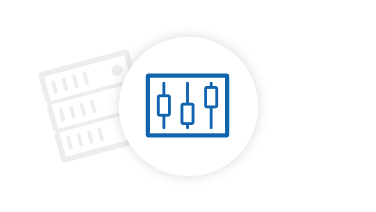Distributed Database Middleware (DDM) is a database middleware service (to be developed into a distributed relational database service) that is compatible with MySQL licenses. It uses a storage-compute decoupled architecture that makes it easy to scale out compute and storage resources to handle a huge number of concurrent requests.

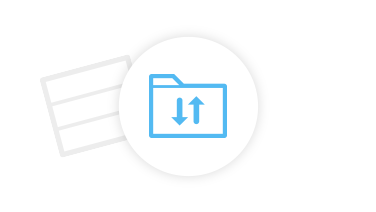
External data can be imported to help you migrate databases to the cloud, and DDM instance data can be exported based on service requirements.
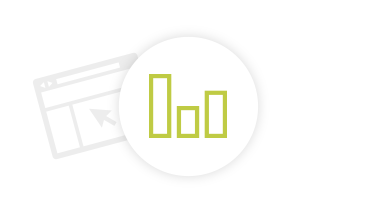
DDM monitors the read/write ratio and slow SQL logs on the console, helping you detect resource and performance bottlenecks as fast as possible.


- Provides automatic horizontal sharding
- Allows you to change your instance class within minutes
- Allows you to add instance nodes without impacting applications
- Allows you to add DB instances with minimal downtime.

- Compatible with MySQL licenses, syntax, and clients
- Makes it easy to import data and migrate databases to the cloud
- Splits read and write requests with no need to modify service code
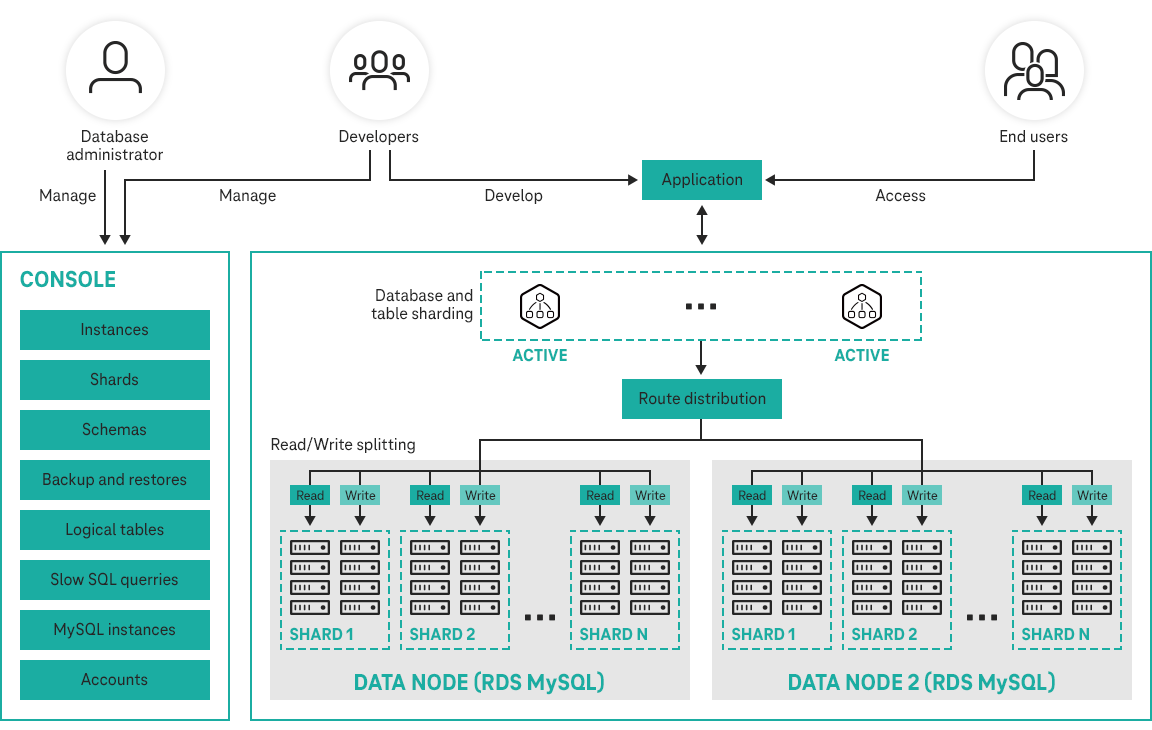
Using a DDM instance is as if you are still using a single-node database no matter how many database shards there are. You can perform database O&M on the DDM console and connect to a database using the Java database connectivity (JDBC) driver or a MySQL client to read and write data, just as you would do with a single-node database.
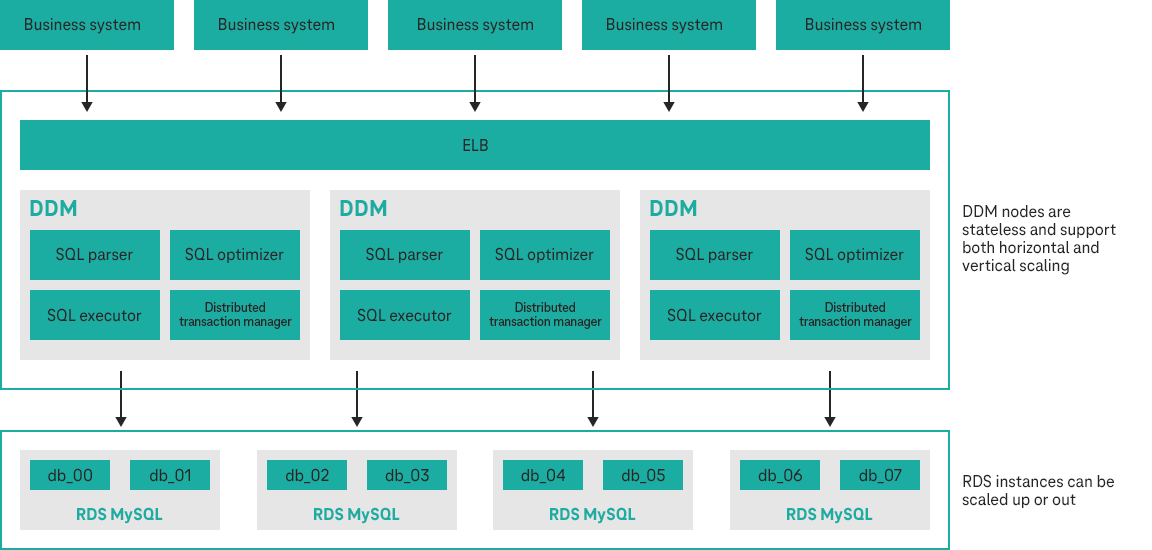
Function | Description |
Horizontal sharding | When creating a distributed database, select a sharding key and DDM will generate a sharding rule to horizontally shard data by the sharding key. |
Scaling | DDM supports both compute and storage scaling. You can scale a DDM instance up or out by adding nodes. Compute scaling is undetectable to your applications, and storage scaling minimizes service interruption to seconds.
|
Distributed transactions | DDM provides three types of transactions, including single-shard, FREE, and XA.
|
SQL syntax | DDM is highly compatible with the MySQL licenses and syntax. |
Read and write splitting | Read and write splitting is transparent to applications. You only need to create read replicas for a DB instance associated with your DDM instance and configure a read policy, without the need to modify application code. This function improves database performance and access efficiency, helping your applications process high-concurrency transactions. |
Global sequence | DDM supports globally unique, distributed, and ascending SNs to meet requirements for primary or unique keys, or other specific requirements. |
Class | Architecture | vCPUs | Memory (GB) |
General-enhanced | x86 | 8 | 16 |
16 | 32 | ||
32 | 64 |
- Currently, only MySQL DB instances of versions 5.7 and 8.0 are supported.
- DDM does not support SSL for MySQL DB instances.
- When you modify configurations of a MySQL DB instance associated with DDM, an exception may occur. After the modification, you need to click Synchronize DB Instance Data on the DDM instance details page to synchronize the change to DDM.
Item | Restriction |
DDL syntax |
|
Item | Restriction |
DELETE statement |
|
UPDATE statement |
|
Item | Restriction |
Database administration statements |
|
Item | Restriction |
Advanced SQL functions |
|
In e-commerce, finance, Online to Offline (O2O), retail, and social networking applications, core transactional systems slow down when there is too much data generated by large user bases and frequent marketing activities, which impairs business development. DDM can be scaled out to improve database processing capabilities and access efficiency, helping your applications handle high-concurrency transactions.
A large number of sensors and monitoring devices are used in industrial monitoring, remote control, smart city extension, smart home, and Internet of Vehicles (IoV), where samples are frequently collected, involving huge amounts of data beyond the storage capacity of single-node databases. DDM provides horizontal capability expansion to help you inexpensively store massive data.
Government agencies, large-sized enterprises, and banks use commercial solutions to support large-scale data storage and high-concurrency database access. These solutions are expensive because they need to rely on mid-range computers and high-end storage devices. DDM, deployed in clusters of general computing ECSs, provides cost-efficient database solutions with the same as or even higher performance than traditional commercial database solutions.
New Features
Learn more
